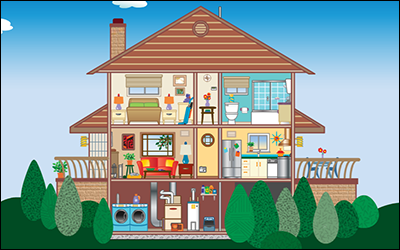Board: Alabama Board of Architects
Credit Hours: 3.00
Rating: 1710 ratings
Approval Number: J607OCC06
Add to Basket
Course Description
This course gives an overview of pollutants that affect indoor air quality such as moisture, biologically derived contaminants, combustion pollutants, volatile organic compounds (VOCs), formaldehyde, radon, lead and others. Overall health issues and tips for construction professionals on methods to decrease the possibility of indoor environmental quality problems are discussed.
Course Objectives
Upon successful completion of this course participants have a better understanding of how to:
- Indicate the sources of different pollutants and substances that affect indoor environmental quality
- Explore combustion pollutant sources from cooking, space heating, hot water generation, and attached garages as well as examine methods on how to minimize or prevent these problems
- Describe where major biologically derived contaminants are found and what environmental conditions support their growth and identify ways to recognize chemical contaminants such as volatile organic compounds (VOCs) like formaldehyde as well as ozone and radon
- Examine health issues by identifying relationships between indoor environmental quality and increased rates of asthma, allergies, and other illnesses
Instructor Bio
 Bonnie Prinse
Bonnie Prinse
Ms. Prinse holds a BS Degree in Environmental Studies from Eckerd College and has pursued master degree studies in Aquatic Zoology at the University of South Florida. She has written scientific portions of impact statements for wetland/upland land delineation, endangered species studies, and water quality testing while employed with a civil engineering and architectural firm in Tampa, FL. Her experience in environmental studies and new construction lend itself to documentary film making, particularly environmental stories that have taken her to the Amazon in Peru and to Costa Rica. Most recently her involvement with earthen construction projects led to a video production showcasing the benefits of building “green.”



